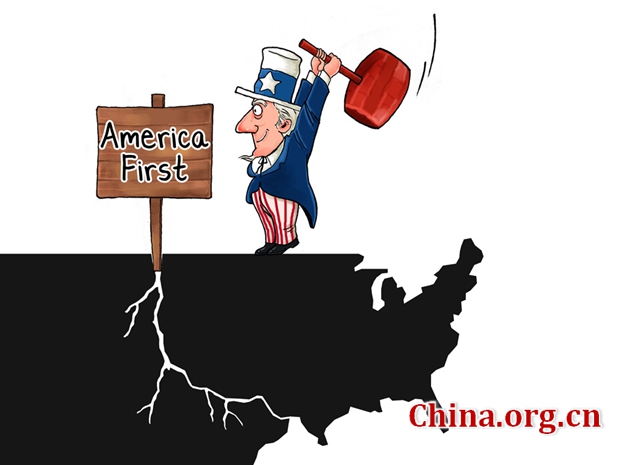Top 10 Chinese buzzwords in 2019
- By Zhang Rui
 0 Comment(s)
0 Comment(s) Print
Print E-mail China.org.cn, December 31, 2019
E-mail China.org.cn, December 31, 2019
Editor's Note: After public recommendations, and then an experts and media vote, the literary periodical Yaowen-Jiaozi has announced the top buzzwords of 2019 popular in Chinese cyberspace helping to shape Chinese people's communications and life, as well as reflecting the internet culture of the year. The editor-in-chief of the periodical magazine, Huang Anjing, said there were other notable catchphrases such as "da ka" (mark), "tuo fen" (not a fan anymore), "pan" (do), "awsl" ("ah wo si le" a.k.a. "ah, I'm dying") , "yu nyv wu gua" (never you mind) popular in 2019; however, after due consideration, they didn't make it to the list because they were considered not to reflect the characteristics of the year or not being so innovative. Here are the top 10 buzzwords.
10. Bully-ism (霸凌主義)

The term "Bully-ism" comes from the English word "bully," and, in a Chinese context means acting against the law and reason, and using force to intimidate the weak. It refers to the American method of bullying in dealing with disputes between countries. In international affairs, the United States, disregarding international relations standards and principles, and reasonable requirements of other countries, frequently uses the weapon of tariffs and sanctions, creating barriers, tending to pressure other countries to obey "America First" policy while grossly interfering in other countries' internal affairs. "Bully-ism" is a popular international buzzword that has caught the attention of Chinese people as well as others around the world. The bullying thinking and behaviors of the United States has done great damage globally.
Go to Forum >>0 Comment(s)
9a49bf50-6b50-4ce4-90f8-e945788b170c.jpg)





